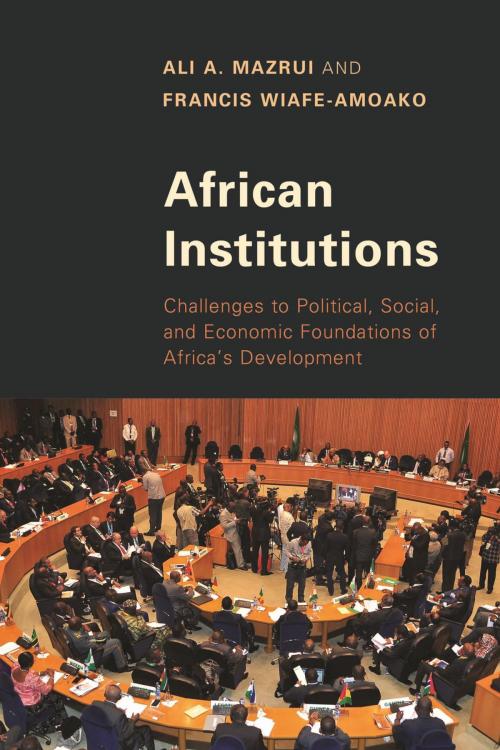African Institutions
Challenges to Political, Social, and Economic Foundations of Africa's Development
Nonfiction, Social & Cultural Studies, Political Science, International, Foreign Legal Systems, Social Science| Author: | Ali A. Mazrui, Francis Wiafe-Amoako | ISBN: | 9781442239548 |
| Publisher: | Rowman & Littlefield Publishers | Publication: | November 12, 2015 |
| Imprint: | Rowman & Littlefield Publishers | Language: | English |
| Author: | Ali A. Mazrui, Francis Wiafe-Amoako |
| ISBN: | 9781442239548 |
| Publisher: | Rowman & Littlefield Publishers |
| Publication: | November 12, 2015 |
| Imprint: | Rowman & Littlefield Publishers |
| Language: | English |
Every political system, either developed or adopted, has an impact on the structure of society and the level of development. This book analyzes the evolution and nature of political institutions and their effect on Africa’s development. The challenges Africa face in developing viable institutions are not limited to the adoption of foreign institutions, but are also rooted in domestic norms that define society itself. Sometimes, these challenges have to do with the incompatibility between foreign and domestic institutions. The fundamental issue then is to understand the African societies, cultures, and other dynamics that have ensured stability in the past and that need to be recognized when adopting contemporary foreign institutions.
This comprehensive text examines three key issue areas in Africa: politics, society, and economy. It demonstrates how the lack of consideration for domestic norms and societal realities explain the weaker institutions and lack of development on the African continent. The chapters examine critical issues such as gender, ethnicity and constitution development, legitimacy and the state, the correlation between abundant resources and instability, the dilemmas of political dynasties, international economic regimes and Africa’s economy, and more. Featuring many case studies, including Kenya, South Africa, Senegal, Ghana, Nigeria, Tanzania, Morocco, Togo, DRC, Ethiopia, Rwanda, the book provides some explanation of underdevelopment in Africa, linking the historical and colonial realities that hinder democratic consolidation to contemporary African politics, society and economy.
Every political system, either developed or adopted, has an impact on the structure of society and the level of development. This book analyzes the evolution and nature of political institutions and their effect on Africa’s development. The challenges Africa face in developing viable institutions are not limited to the adoption of foreign institutions, but are also rooted in domestic norms that define society itself. Sometimes, these challenges have to do with the incompatibility between foreign and domestic institutions. The fundamental issue then is to understand the African societies, cultures, and other dynamics that have ensured stability in the past and that need to be recognized when adopting contemporary foreign institutions.
This comprehensive text examines three key issue areas in Africa: politics, society, and economy. It demonstrates how the lack of consideration for domestic norms and societal realities explain the weaker institutions and lack of development on the African continent. The chapters examine critical issues such as gender, ethnicity and constitution development, legitimacy and the state, the correlation between abundant resources and instability, the dilemmas of political dynasties, international economic regimes and Africa’s economy, and more. Featuring many case studies, including Kenya, South Africa, Senegal, Ghana, Nigeria, Tanzania, Morocco, Togo, DRC, Ethiopia, Rwanda, the book provides some explanation of underdevelopment in Africa, linking the historical and colonial realities that hinder democratic consolidation to contemporary African politics, society and economy.















